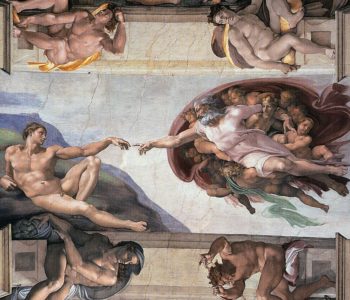 Long before vehicles came equipped with DVD players and every family possessed various mobile devices to keep children occupied on long drives, kids were forced to play a number of “car games” to pass the time. “I Spy” was always a nice diversion, especially if you were stuck in a parking lot somewhere. The “Alphabet Game” could easily eat up a few hours during an interstate journey, however my personal favorite was “I’m An Animal.”
Long before vehicles came equipped with DVD players and every family possessed various mobile devices to keep children occupied on long drives, kids were forced to play a number of “car games” to pass the time. “I Spy” was always a nice diversion, especially if you were stuck in a parking lot somewhere. The “Alphabet Game” could easily eat up a few hours during an interstate journey, however my personal favorite was “I’m An Animal.”
In case you’ve never heard of it, “I’m an Animal” is a 20 questions type of game in which player one selects an animal and the other players have to try and guess what it is using only yes or no questions. Mythical creature such as dragons and winged horses were not allowed, nor was the One-Eyed, One-Horned, Flying, Purple People Eater (don’t ask me how I learned that was against the rules) but aside from that, anything in the traditional animal kingdom was fair game. Still, I am sure you can understand my surprise when, at the tender age of six, my brother stumped me by choosing the Human Being.
“That doesn’t count!” I cried. “We aren’t animals! We’re people!”
My brother, who was in the fifth grade at the time, gave me a superior smile. “Yes, but we are members of the animal kingdom. In fact, we are mammals.”
I didn’t believe him and so I consulted the only person in the car who could mediate such a discussion…my father. To my astonishment, Dad told me that my brother was correct and that human beings were in fact animals. However he also said that my brother was bending the rules as far as they could go without actually breaking them and that we should end the game in a tie. Somehow, I didn’t feel assuaged.
I thought about that incident for a long time after it happened. Having lived my first six years on the planet more or less believing that we were somehow “different” from everything else, it was a bit of a letdown to discover that I had more in common with my pet dog than I’d originally thought. Was there nothing special about human beings at all?
Today’s first reading tackles that question in a pretty poetic and profound way. In fact, if you really stop and think about it, we could almost call it the “Recipe for the Human Race.” In this reading, we see that place where science and religion cross paths. We see what makes us similar to the other creatures of the world and what sets us apart. We discover the mystery of our existence and learn the purpose for it as well. It kind of makes me wonder if the original author of this reading (Ben Sira) was at one time was a kid like me who had a deep philosophical question and was determined to riddle it out.
In my opinion, that’s the real genius in the Old Testament. In this collection of texts, there is a little something for everyone: history, science, literature, philosophy, the fine arts, and even a few irrational numbers (I never have figured out what a “cubit” is.) Am I the only person who is impressed by this? How did a recently evolved people living in a very young world manage to start unraveling the great mysteries of the universe? While I believe that God inspired their works, as a writer with a God-given talent of her own, I assure you, He doesn’t sit us down and start dictating a tome. We have to use every part of our brain to contemplate, research, analyze and create. How did Moses (or whoever wrote Genesis) come up with TWO possible theories for the creation of everything? One would have been impressive enough, but two? How did the author of Job’s tragic tale mount a defense for the will of God that rivals Shakespeare in terms of literary style? How did King David and friends write the lyrics to the Psalms in such a way that they still sing to our hearts today? Were they simply the Lennon and McCartney of the ancient world?
Today, in 15 simple verses, Sirach offers us a hint at the answer. Human beings ARE different. Although we have similarities to our animal counterparts, we were endowed with things that go beyond instinct, opposable digits, hair and the ability to have live offspring. We were given something goes outside the natural order of things and those gifts are our inheritance from the Father: free will, an inventive heart, a glorious voice, respect for others, power over all things else on Earth, and a covenant with the Creator Himself. It’s extraordinary to think about.
Yes, I am an animal…but I am also a child of God.
Today’s reading for Mass: SIR 17:1-15; PS 103:13-14,15-16,17-18; MK 10:13-16
